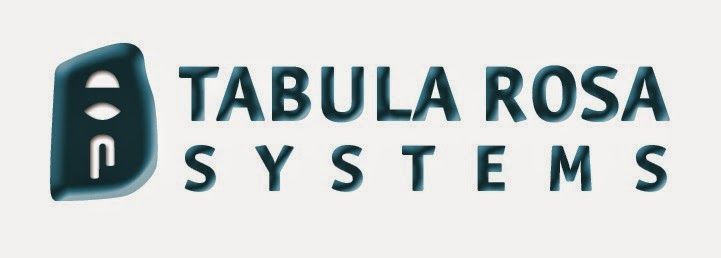
High-end cyber crime generates a great deal of attention. However, lesser crimes may be far more injurious but are given far less press. Here is a new book which presents these discrepancies. Enjoy the article below.
=====================================================
Sarah Jeong’s The Internet of GarbageTakes
Cyber Crime Seriously
by Maddy Myers - Thursday, July 23rd 2015
at 2:11 pm from themsrysue.com
Sarah Jeong’s
new book, The Internet of Garbage, tackles a
topic as old as the Internet itself: cyber crime, online harassment, doxing,
and what different virtual communities have done (or failed to do) in an effort
to prevent these misdeeds. Unlike other recent attempts to unravel the
mechanics of online harassment, such as Jon Ronson’s So You’ve Been Publicly Shamed, Jeong’s work seeks
to delve deeper into how social media services should navigate these murky
waters, as well as how the media approaches cyber crime — and
which stories fall through the cracks.
In an interview at The Toast, Jeong elaborates:
When black women get harassed,
either their stories never appear in the media, or their stories get retold,
blaming the black woman for the ensuing harassment … This isn’t just an
issue of equitable treatment in the media. It actually has serious policy ramifications.
Some of the most prominent funded anti-harassment activism centers on carceral
remedies — that is, resorting to police, prisons, and the criminal justice
system. If you’re a person of color, trans, and/or a sex worker, you may be
less willing to go to the police.
Another problem, according to Jeong,
is the media’s simplistic focus on “mean words,” rather than on more
concerted cyber-stalking attempts (e.g. looking up real estate
records, going to a person’s place of work or private residence, taking
photos of that place and/or documenting that person’s whereabouts … or
worse).
Most of the time, that address is
available through a data broker that sells information about individuals.
There’s no reason why it should be that easy to physically locate and harm a
private individual you got mad at on the Internet.
Jeong has also pushed back against ICANN’s recent efforts to make “commercial”
domain registrations public. Since domain registrations include
one’s address, this could affect folks who run e-businesses from their homes …
such as bloggers who run content by subscription. But this
legislation doesn’t consider small businesses, least of all those helmed by marginalized
creators, says Jeong:
Everything is primarily driven by
corporate interests. There is little thought for the safety and privacy of
ordinary individuals. There are many changes that can be made at both the
national and international level that would make all potential targets of
harassment safer.
In my own
anecdotal experience, cyber crime is rarely taken seriously by
authorities. When a friend of mine privately told me a story about
having been cyber-stalked this past week, I vague-tweeted about the
topic and heard yet another disheartening, similar tale
from another peer. The Toasttells Jeong
that her book should be sent to every media outlet so that they better understand
how to cover cyber-crime, and I don’t disagree; the media may help shed light
on how poorly legislated these crimes are, and how little they are taken
seriously.
Even
the conventionally attractive white women whose stories have made it
onto public media platforms have not received tangible justice, although
at least their stories are heard. This story of a Canadian cyber-stalker has gotten some press lately;
the UK has come down hard against online abusers. However, in the
US, these stories are still rare; North Carolina is one of the few states in
the US that has criminalized cyber-stalking, but it’s still very difficult to get a conviction. The Internet
is still stereotyped as a place where anything goes, with no
consequences. The result of that attitude? Bile splashes on marginalized
people, and they never receive justice, particularly if they don’t fit the
media profile of a “safe” virginal victim.
I’m looking
forward to hearing more from Jeong, whose nuanced and well-researched approach
to this systemic issue sounds refreshing. I got her book on Amazon today; it’s also available on iTunes
================================================
www.tabularosa.net
In addition to this blog, Netiquette IQ has a website with great assets which are being added to on a regular basis. I have authored the premiere book on Netiquette, “Netiquette IQ - A Comprehensive Guide to Improve, Enhance and Add Power to Your Email". My new book, “You’re Hired! Super Charge Your Email Skills in 60 Minutes. . . And Get That Job!” will be published soon follow by a trilogy of books on Netiquette for young people. You can view my profile, reviews of the book and content excerpts at:
www.amazon.com/author/paulbabicki
If you would like to listen to experts in all aspects of Netiquette and communication, try my radio show on BlogtalkRadio Additionally, I provide content for an online newsletter via paper.li. I have also established Netiquette discussion groups with Linkedin and Yahoo. I am also a member of the International Business Etiquette and Protocol Group and Minding Manners among others. Further, I regularly consult for the Gerson Lehrman Group, a worldwide network of subject matter experts and have been a contributor to numerous blogs and publications.
Lastly, I
am the founder and president of Tabula
Rosa Systems, a company that provides “best of breed” products for network,
security and system management and services. Tabula Rosa has a new blog and Twitter site which offers great IT
product information for virtually anyone.
==============================================






No comments:
Post a Comment